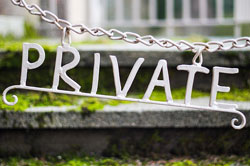Sexual Abuse Counselling
Survivors of Childhood Sexual Abuse
 If, having seen the heading above, you decide to read on, it is
possible you have been the recipient of childhood sexual abuse.
Approximately 20% of females and 10% of males in New Zealand have
experienced childhood sexual abuse.
If, having seen the heading above, you decide to read on, it is
possible you have been the recipient of childhood sexual abuse.
Approximately 20% of females and 10% of males in New Zealand have
experienced childhood sexual abuse.
It may have been anything from inappropriate fondling through to rape. Perhaps a trusted person performed the abuse, maybe a family member or a close family friend. It could have been mother or father, or a grandparent. Possibly even a brother or a sister. Maybe it was a youth leader, minister, teacher or some other respected authority. It may have been accompanied by physical, mental and emotional abuse. It may have happened only once or it may have been a regular event over many years. At the time, you may have just had to put up with it. Possibly you told one of your parents only to have your story dismissed as a fantasy or lies.
Sexual Abuse Symptoms
It is very likely the abuse has caused problems for you in your adult life. These could include depression, anxieties, sexual difficulties, inexplicable bouts of anger, relationship difficulties, lack of assertiveness and many other disturbances. Yet you survived and now you are finding the impacts or memory of what happened have returned and will not go away. What can you do about this?
Treatment for Sexual Abuse
The key thing is to find someone to whom you can tell your story and with whom you can explore the effects the abuse has had on you. It is usually better to approach a professional counsellor or psychotherapist rather than to expect a family member to be able to absorb and hold all you need to say. Whatever you decide to do please be aware that people usually need help to address the consequences of childhood abuse.
While you cannot change what has happened, you can certainly change its effects upon you. Therapy takes time, commitment and patience, but it has the potential to lead you into a fuller life free of the effects of unwanted events inflicted on you before you were able to say ‘No!’.
Symptoms in Children
Finding out that your child has been sexually abused can be an extremely stressful experience for a parent. Seeking professional support at this time can help both the child and the extended family through a very difficult time. The most common indicators that professional support could be important include changes in your child’s behaviour. Some children start behaving like a younger child e.g. wetting the bed, becoming clingy, or needing a nightlight when they previously didn’t. Children's'' behaviour can also become more difficult, including becoming more moody or angry, being more defiant, becoming withdrawn, and/or less confident than previously. A child’s progress at school can also slow.
Sometimes it is parents who need someone to talk to overcome the confusing array of feelings that confronts them as they struggle to come to terms with their child’s sexual abuse experience. A Child & Adolescent Psychotherapist help parents decide on the most supportive and appropriate approach for your family. The most common approach is a combination of individual therapy for the child and support sessions for parents.
